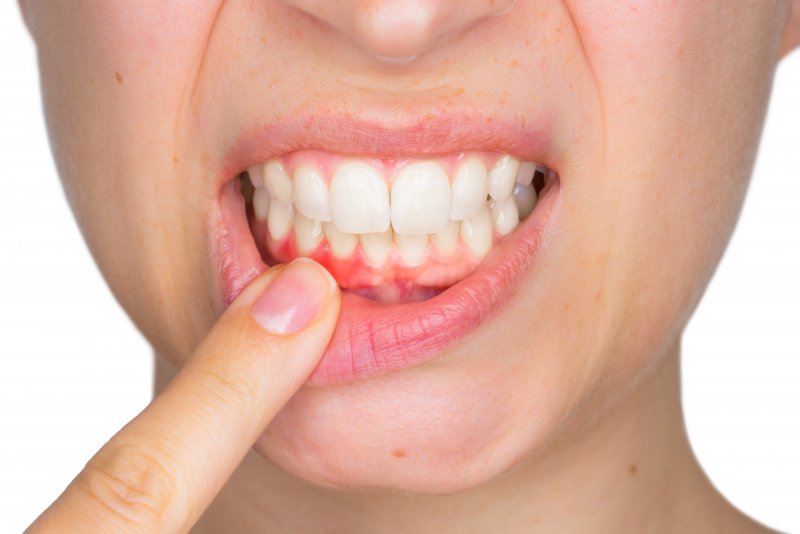
Genetics play a huge role in nearly every aspect of your life. Your height, appearance, and health all go back to your DNA. It’s what makes you – you! You know that if your parents or grandparents have had certain conditions or diseases, like diabetes or some cancers, you may have an increased risk. But how do genetics affect your oral health? Continue reading to learn more about whether your DNA increases your risk of developing gum disease in Reno.
Is Periodontal Disease Related to Genetics?
Some patients do seem to be more susceptible to gum disease and other oral health issues. And many of them note that other people in their family, such as parents and siblings, also have periodontal problems. In fact, some studies have suggested that your risk of periodontal disease is somewhat influenced by your genes. However, it is important to note that just because your family members have gum disease does not necessarily mean that you are destined to suffer with the same problem. The same thing goes for those who do not have any history of periodontal disease in their family. It doesn’t mean that you are in the clear.
What Else Can Cause Gum Disease?
Even though genetics can play a role in the development of gum disease, there are many other risk factors that can contribute. Here are a few:
- Poor Oral Hygiene: This is the most common cause of periodontal disease. Poor brushing and flossing habits allow plaque to build up on the teeth and harden. This causes the gum tissue to become infected, leading to further issues.
- Smoking Tobacco Products: Not only does smoking increase your risk of gum disease, it can make treatment less successful.
- Diabetes: When you have diabetes, you are more susceptible to infections of the gums and bones.
- Dry Mouth: This creates an environment that is perfect for bacteria growth.
How Can You Prevent Periodontal Disease?
- Brush twice daily: Removing food debris and plaque is crucial for preventing gum disease.
- Floss every day: This removes plaque along the gumline that your toothbrush cannot reach.
- Use mouthwash: Using a mouth rinse helps to wash away remaining food particles and kill bacteria in the mouth.
- See your dentist: When treated early on, you can actually reverse early stages of gum disease. If you have a later stage, getting treatment is crucial in order to prevent it from progressing and leading to loose teeth or tooth loss.
If gum disease runs in your family, it’s especially important that you are taking everyday steps, like regular brushing and flossing, to prevent its onset. By practicing good oral hygiene, making healthy lifestyle choices, and seeing your dentist in Reno regularly, you can keep your smile healthy!
About the Author
Our team provide a wide variety of services, including periodontal therapy, at her practice in Reno, NV. She earned her DMD at the University of Illinois at Chicago School of Dentistry where she graduated at the top of her class. She is a member of the American Dental Association, the Illinois State Dental Society, and the Chicago Dental Society. By working alongside an endodontist and oral surgeon, patients can get everything they need at one convenient location. For more information or to schedule an appointment, visit her website or call (775) 683-3008.

